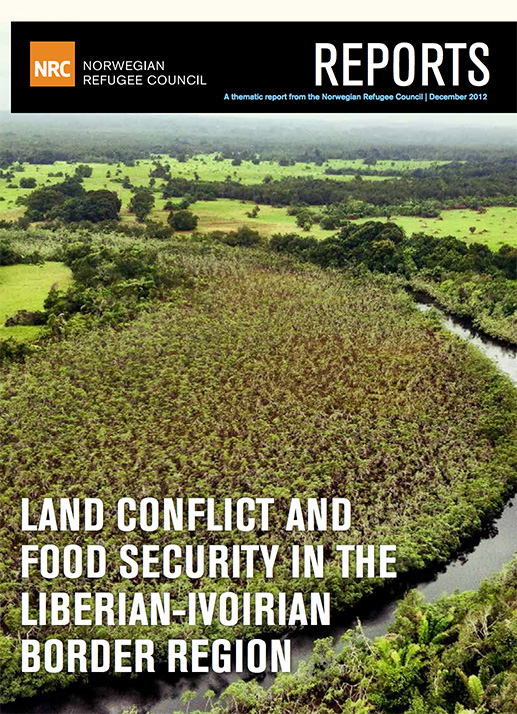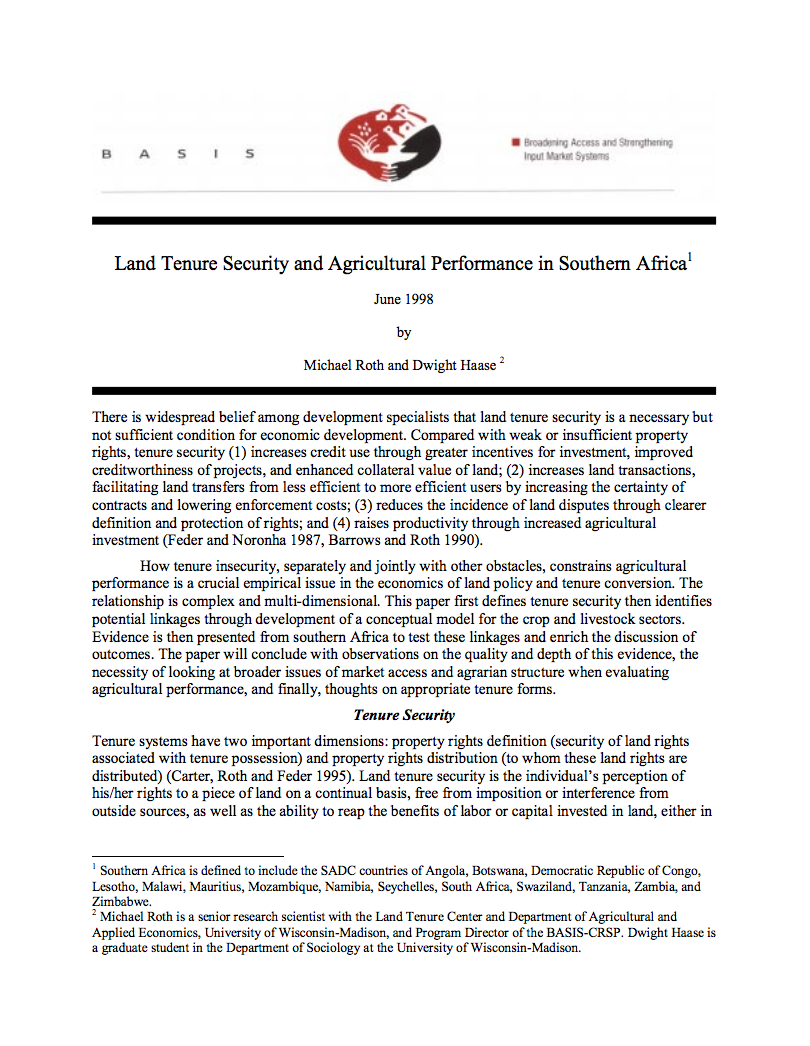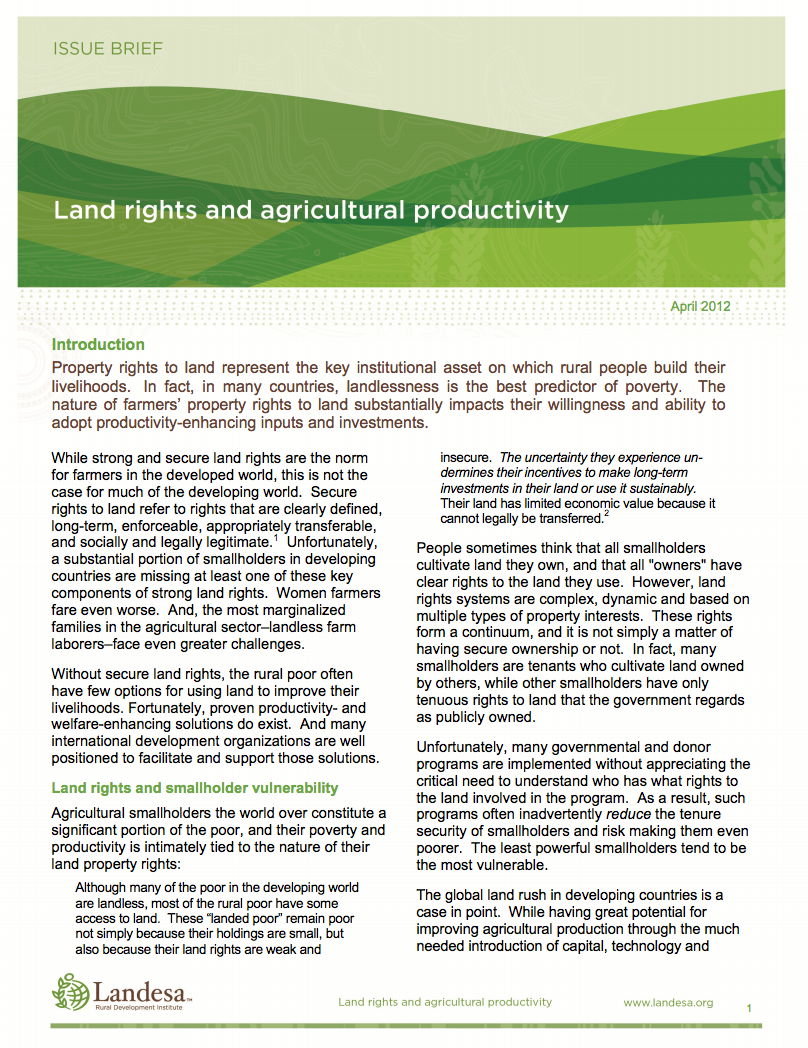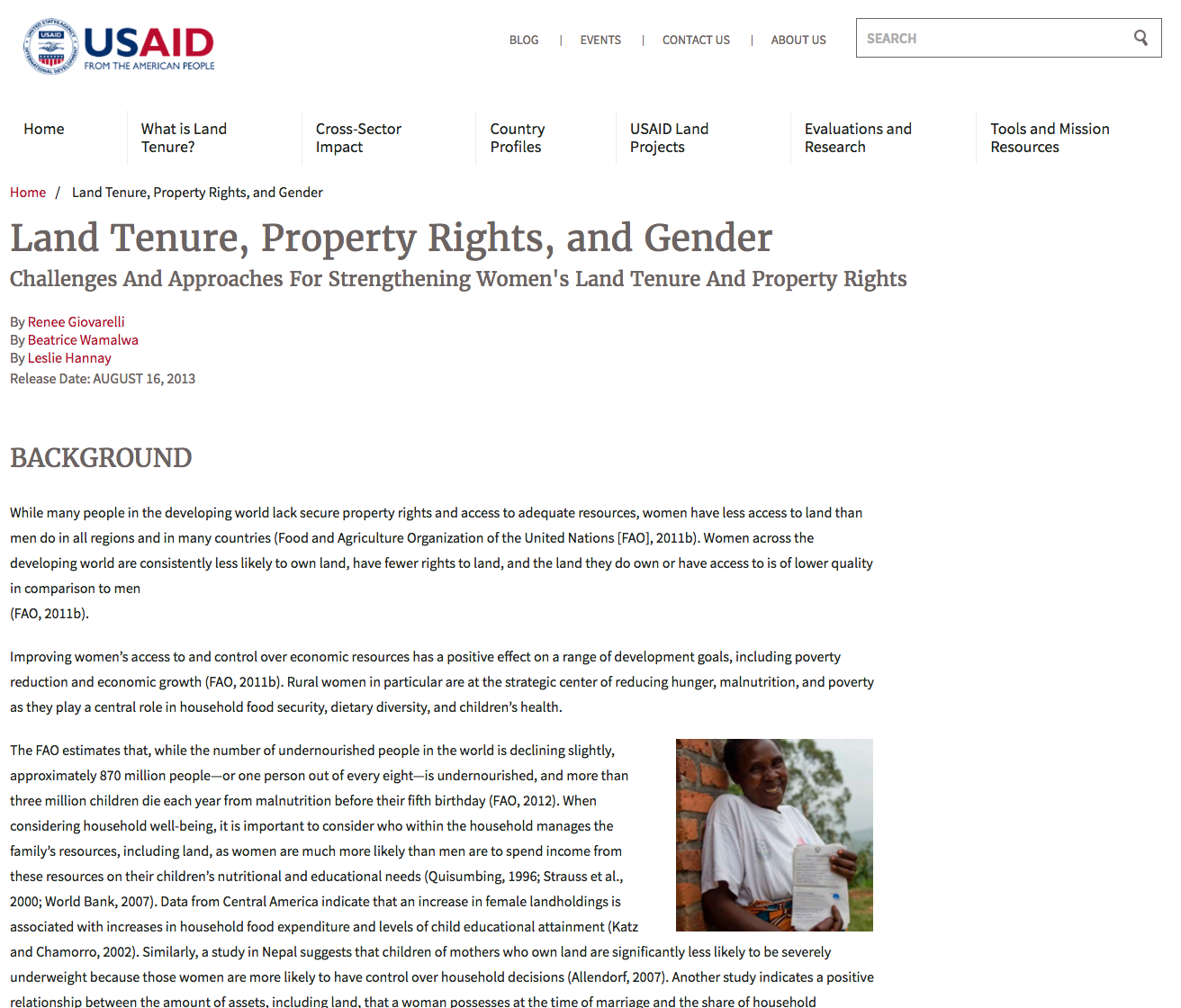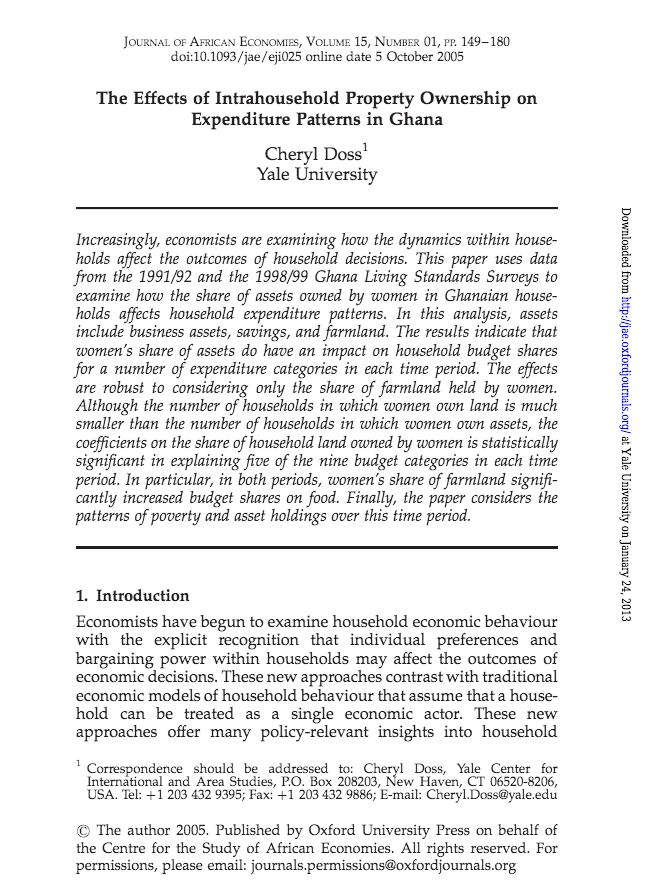Land Conflict and Food Security in the Liberian-Ivoirian Border Region
This thematic report is the fifth in a series on housing, land and property rights, and tenure, and land conflict in Liberia. It examines land tenure and conflict from a Liberia/Cote d’Ivoire cross-border perspective within the context of forced displacement caused by the 2010 post-election crisis.

